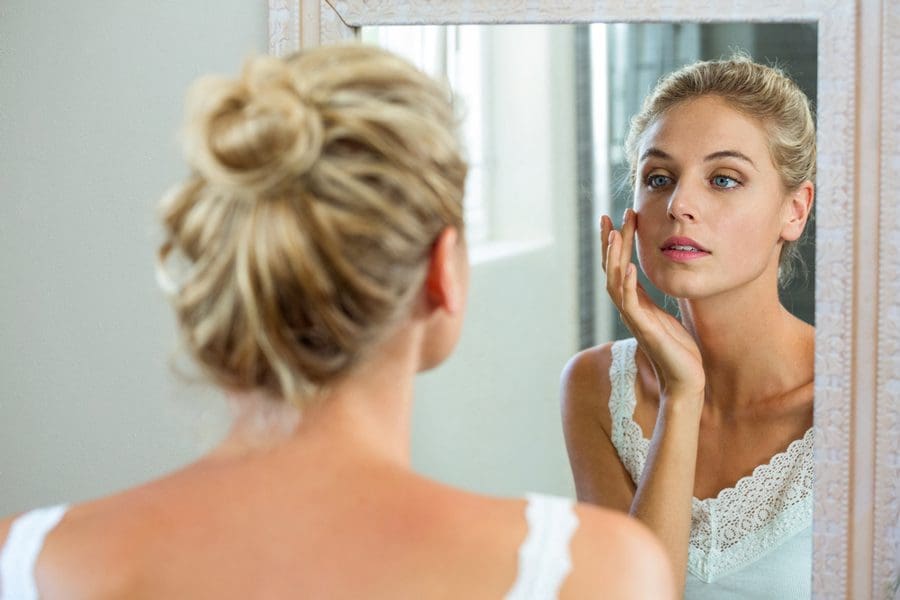The term maskne was coined early on in the pandemic to describe the unwanted skin problems caused by masks. However, you can help avoid this issue by implementing a few simple skincare techniques in your everyday routine. Here are some helpful hints to combat maskne!
Add a Layer of Oil Free Moisturizer
While you might think that adding anything between your skin and mask will increase acne, that’s not the case. A very thin layer of moisturizer (oil free if you are prone to breakouts), can actually protect your skin by serving as a barrier and helping to reduce irritation, friction, and mask-related breakouts.
Wash Your Face
Every morning and night, you should wash your face with lukewarm water. Be sure to pat dry rather than rub to avoid additional irritation. For increased protection, you should also wash your face after sweating or wearing a mask for an extended period.
Ditch the Makeup
When you skip wearing makeup underneath your mask, you decrease the chances of your pores becoming clogged. That said, if you’re attached to your makeup routine, try reducing the amount of product applied to your face and instead opt for a thin layer. Use products labeled as non-comedogenic or “won’t clog pores” to help your skin out as much as possible.
Change Out Your Re-usable Mask
According to dermatologists, changing out your mask multiple times a day can make a big difference when it comes to maskne, as it prevents the spread of oils on your face. Also, be sure you’re washing your masks regularly, so they’re clean and fresh for their next use.
Pay Attention to the Products You Use
When washing your masks, be aware of any chemicals that are in a given product. For instance, fragrant laundry detergents can exacerbate your skin irritation rather than relieve it. Additionally, chemical-heavy makeup can add unwanted stress to your skin. So, when in doubt, go with all-natural, fragrance-free products.
Keep Everything Else in Check
Just because your skincare routine is on point, you should be doing everything you can to protect your skin, including drinking plenty of water, eating a well-balanced diet, building exercise into your schedule, and getting plenty of sleep. Many other environmental, hormonal, and stress factors can contribute to acne, so stay ahead of the problem by keeping everything else in your life in check.






